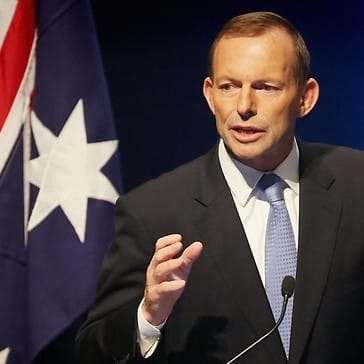Money games: Uni fees, 'boring' Budgets and interest rates
So, what has happened in the business world this past week, and does it matter? Mojonews.com.au business editor ARON LEWIN looks at five stories that grabbed the headlines or slipped under the radar.

So, what has happened in the business world this past week, and does it matter? Mojonews.com.au business editor ARON LEWIN looks at five stories that grabbed the headlines or slipped under the radar.
Will the 2015 Federal Budget bore us?
Prime Minister Tony Abbott’s script two months ahead of the 2015-16 Federal Budget is that it will be “frugal” and “dull”, because most of the heavy lifting was done last year.
However, Abbott’s promise to deliver a surplus within a five-year period fuelled concerns that Budget cuts would continue, particularly because Treasury suggested that a fall in iron ore price would add $1.8 billion to the deficit from next year, and the Government has failed to pass its saving measures from the last Budget through the Senate.
A boring Budget won’t help end the so-called Budget emergency, particularly with the deficit estimated to grow from $24.5 billion in 2014-15 to $103.9 billion in 2017-18.
In The Conversation, Melbourne University Professor Peter Lloyd wrote that the Government should increase tax revenue to reduce the Budget deficit.
Christopher Pyne remains determined to deregulate university fees
Federal Education Minister Christopher Pyne continues to pursue university fee deregulation, even though it was voted down in the Senate 34-30 last Tuesday.
Pyne’s initial proposal included enabling universities to set their own fees, while HELP loans would be issued to 80,000 TAFE and College students, but it has since been watered down in an effort to win votes from senators who hold the balance of power.
In response, Universities Australia CEO Belinda Robinson – who represents 41 Australian universities – said universities faced “difficult decisions” on staff, courses and campuses without more public funding.
Robinson said Australia was suffering from a “historic underdevelopment in universities” and she hoped a failure to pass the higher-education reform package would precipitate a “national discussion on a long-term, sustainable and predictable funding model for university education and research”.
Interest rates looks to be heading down, again
RBA Governor Glenn Stevens said the bank was talking about a further cut to the current record low 2.25 per cent interest rate to stimulate an economy that is suffering from slowing growth, falling commodity prices, and rising unemployment.
The Australian Prudential Regulation Authority (APRA) raised its concerns, saying more cuts to the interest rate would increase risk for investors in a housing market that is already suffering from high household debt.
Will Australia join the Asian Infrastructure Investment Bank?
Australia, along with 19 other nations, is set to join the Asian Infrastructure Investment Bank, which is an Asian-based development fund for major international infrastructure projects. The fund has been a contentious topic both in Australia and abroad.
The Abbott Government had echoed scepticism from Barack Obama, claiming it over-accommodated China’s interests and raising concerns about transparency in planning, but it now appears Australia is on the bring of joining.
“We have been considering it one way or another for quite a few months now,” Abbott said.
It has been reported that Australia will invest about $3b into the AIIB, and Treasurer Joe Hockey expected it would create jobs through opportunities for Australian contractors.
The National Security Committee rejected China’s membership proposal last year, but it too back flipped, giving permission for Australia to join, while a final decision is due today (Monday).
Australia’s influence on the allocation of funds if it joins would be minimal, because voting rights depend on a member nation’s GDP.
In The Conversation, University of Queensland Professor Paul Frijters wrote that Australian membership would “persuade the Chinese Government that it can do business with the Australian government and that we are a place to give cheap loans to in the future”.
More, lonelier households
An ABS report released last Thursday forecast 4.3 million new households in the next 25 years, with more than 12.7 million by 2036. The ABS report also predicted growth in the percentage of lone-person households to exceed group and family households because of an ageing population.





